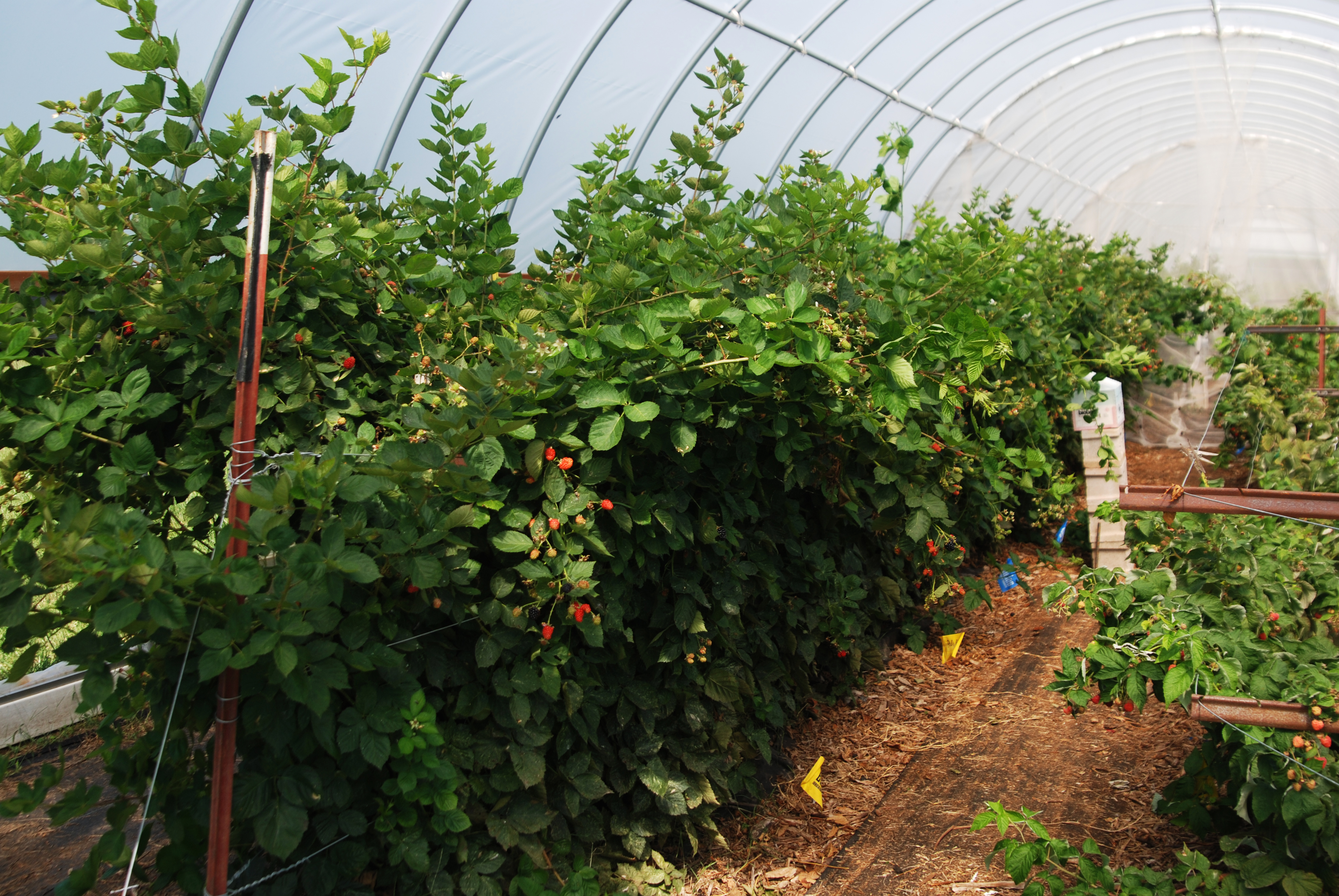What we did this summer: learning real-world scientific research
By Dave Edmark
The Cooperative Extension Service
U of A System Division of Agriculture
Fast facts:
- Students at UA worked with scientists in horticultural crops research
- Summer programs supported by university, federal agencies
(513 words)
FAYETTEVILLE, Ark. – While faculty scientists were exploring the impact of high tunnels
for agricultural production this summer, Bailey Smith and Kenneth Buck were in the
lab and field learning both research and horticulture contributing to the fundamental
understanding of how tunnels affect crops.
Smith, a biological and agricultural engineering undergraduate at the University of Arkansas, spent 10 weeks working under the supervision of UA System Division of Agriculture faculty in the Eco Research Experience for Undergraduates program. She was invited to assist in research on sustainable production systems for horticultural crops, particularly the benefits of winter cover crops in high tunnel tomato production. The Eco REU program is a collaborative effort of the UA, the U.S. Department of Agriculture and the National Science Foundation.

“I was able to learn what scientific research is like in the real world,” said Smith, a UA junior biological engineering major. “You need to be innovative in order to compensate for the unexpected inevitable issues and to take advantage of opportunities as they occur. I think it was very beneficial for me to experience challenges in my research this summer with the effects of winter cover crops on tomato plants, because that will allow me to overcome them in the future.”
Smith is considering whether to go to graduate school or enter the labor market upon graduation in 2017. Her summer experience exposed her to the agricultural side of biological engineering by running the tunnel’s irrigation system, taking readings on tomato leaves and preparing them for nitrogen analysis, measuring photosynthesis data in the tunnel and harvesting blackberries and blueberries.
"I realized I have a great curiosity for manipulating plants and crop growing systems,” she said, adding that her time spent on her research poster presentation for a statewide agricultural resources conference, an oral presentation and manuscript as the capstone to the REU experience would prepare her for the future.
Buck, a horticulture major who plans to graduate in 2018, worked in the high tunnel berry project as part of the Young Scholar Enhancement program sponsored by the U.S. Department of Agriculture’s Sustainable Agriculture Research and Education program. He harvested blackberries twice a week, collected data on post-harvest berry quality comparing fruit from the field to high tunnel production systems, and gained experience in horticultural crop management including high tunnel management and pest scouting. He was trying to answer questions about whether or production systems affect fruit quality.
“One of the things that surprised me about the research was how much I worked with statistics,” Buck said. “Horticulture from a professional perspective is all about cultivating and caring for plants, but in the world of research the plants essentially become living data points.”
Curt Rom, a University Professor of horticulture who supervised the high tunnel research
program and the students, said having undergraduate students in our program adds vitality.
“They bring new ideas, new perspectives, and fresh curiosity. They work alongside
and complement the work of our graduate students and give us a continuum of discovery
and learning throughout our lab group. This is hands-on learning at its best.”
Pursuant to 7 CFR § 15.3, the University of Arkansas System Division of Agriculture offers all its Extension and Research programs and services (including employment) without regard to race, color, sex, national origin, religion, age, disability, marital or veteran status, genetic information, sexual preference, pregnancy or any other legally protected status, and is an equal opportunity institution.
###
Media Contact: Mary Hightower
Dir. of Communication Services
U of A Division of Agriculture
Cooperative Extension Service
(501) 671-2126
mhightower@uada.edu
Related Links